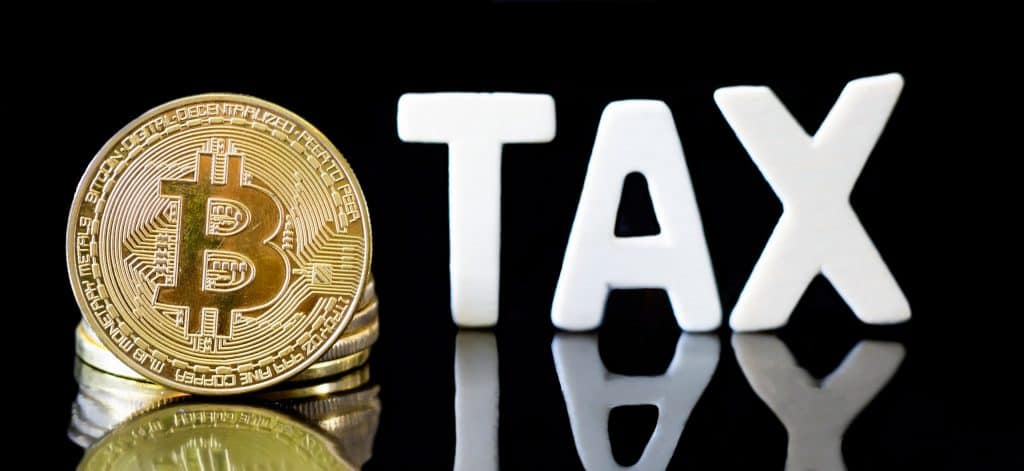Voraussichtliche Lesedauer: 7 minutes
In an unprecedented development, the Nordrhein-Westfälische Steuerfahndung, Germany’s most formidable tax investigation authority, has obtained a substantial data package from a leading cryptocurrency exchange. This data, embodying transactional records from thousands of users, has sparked concerns about unreported gains and potential tax evasion in the crypto world. With potential damages estimated in the tens of millions of euros, this revelation has sent shockwaves through the cryptocurrency community, reminding investors of the importance of understanding how crypto is taxed and the serious legal consequences of non-compliance.
Understanding Crypto Tax: A Critical Responsibility

Accurately reporting cryptocurrency gains is not merely a legal obligation but also crucial for maintaining market integrity. Failure to meet tax obligations could result in audits, penalties, and even criminal charges. The emergence of cryptocurrencies has posed fresh challenges for tax authorities worldwide, prompting governments to establish clearer crypto tax guidelines. This is why working with a crypto tax accountant can be beneficial, as they can help navigate the complex and often confusing landscape of crypto taxation.
One key issue lies in the classification of cryptocurrencies. Some jurisdictions consider them as capital assets subjected to capital gains tax, while others view them as properties or commodities. This discrepancy has created confusion and an opportunity for some investors to exploit the ambiguity, underscoring the need for international consensus on crypto tax regulations.
77% of retail CFD accounts lose money. Cryptoassets are a highly volatile, unregulated investment product without EU investor protection. Your capital is at risk
Tax Implications of Crypto-to-Crypto Exchanges
Crypto-to-crypto exchanges have surged in popularity among investors seeking portfolio diversification. However, many remain unaware of the tax implications involved. Unlike traditional financial markets where asset exchanges may not trigger taxable events, in the crypto realm, each exchange constitutes a taxable event, necessitating the calculation of gains or losses based on the fair market value at the time of exchange. This means that even in the absence of cash transactions, individuals are still obligated to report and pay taxes on any gains realized.
In light of the recent data analysis by the Nordrhein-Westfälische Steuerfahndung, individuals with undeclared crypto gains are faced with a crucial decision: to self-disclose or risk detection by tax authorities. Self-disclosure involves voluntarily reporting previously undisclosed gains, with the potential of reducing penalties.

While self-disclosure empowers individuals to rectify their situation and potentially receive more lenient treatment, it is not without drawbacks. Incorrect or incomplete disclosures could lead to additional complications and potential legal repercussions. A crypto tax accountant can be invaluable in navigating this complex process and ensuring accurate reporting.
77% of retail CFD accounts lose money. Cryptoassets are a highly volatile, unregulated investment product without EU investor protection. Your capital is at risk
Global Ripple Effects on the Crypto Market
The data analysis conducted by the Nordrhein-Westfälische Steuerfahndung signifies more than isolated cases of tax evasion; it highlights the escalating focus on regulating digital assets and the importance of tax compliance. This development echoes global efforts to establish clearer crypto tax guidelines.
The implications of these developments on the adoption and regulation of cryptocurrencies, however, remain uncertain. Some argue that stricter tax enforcement could deter market participation, while others believe it will promote transparency and legitimization. The advent of Decentralized Finance (DeFi) and Non-Fungible Tokens (NFTs) further complicates the landscape, as tax authorities grapple with the unique challenges these concepts present.

Staying Informed and Compliant
As the recent data analysis by Germany’s tax authorities underscores, understanding and adhering to crypto tax obligations is not an option, but a necessity in today’s digital asset landscape. As tax authorities worldwide are stepping up their game to detect and penalize non-compliance, investors must ensure they are fully aware of the tax implications of their crypto transactions. Guidance from a crypto tax accountant can provide invaluable assistance in navigating the ever-evolving regulatory landscape.
In these dynamic times, staying informed is crucial. Make sure to visit P2E-News regularly to keep abreast of the latest developments in the world of cryptocurrencies and digital assets. Your knowledge today could be your safeguard tomorrow.
77% of retail CFD accounts lose money. Cryptoassets are a highly volatile, unregulated investment product without EU investor protection. Your capital is at risk
FAQ
Crypto taxes are generally based on the principle that cryptocurrencies should be treated as capital assets, like stocks or bonds, rather than as currencies. This means that when you sell your cryptocurrency at a gain, you may owe either normal income taxes or capital gains taxes, depending on how long you held the crypto.
A crypto tax accountant is a professional who specializes in the tax implications of cryptocurrency transactions. They can assist you with your crypto tax returns filing, IRS tax audits, and maintaining compliance with crypto tax regulations.
Crypto-to-crypto exchanges are considered taxable events. This means you must determine and report the gains or losses based on the fair market value at the time of the exchange, even if no cash is involved.
Failure to comply with crypto tax obligations can lead to audits, penalties, and potentially severe legal repercussions. It’s strongly recommended to seek professional advice to ensure compliance.
If you have unreported crypto gains, you can pursue self-disclosure by voluntarily reporting the previously undisclosed gains to the tax authorities. This could potentially reduce penalties and demonstrate your willingness to comply with tax regulations. It’s advisable to consult with a crypto tax accountant in such situations.




